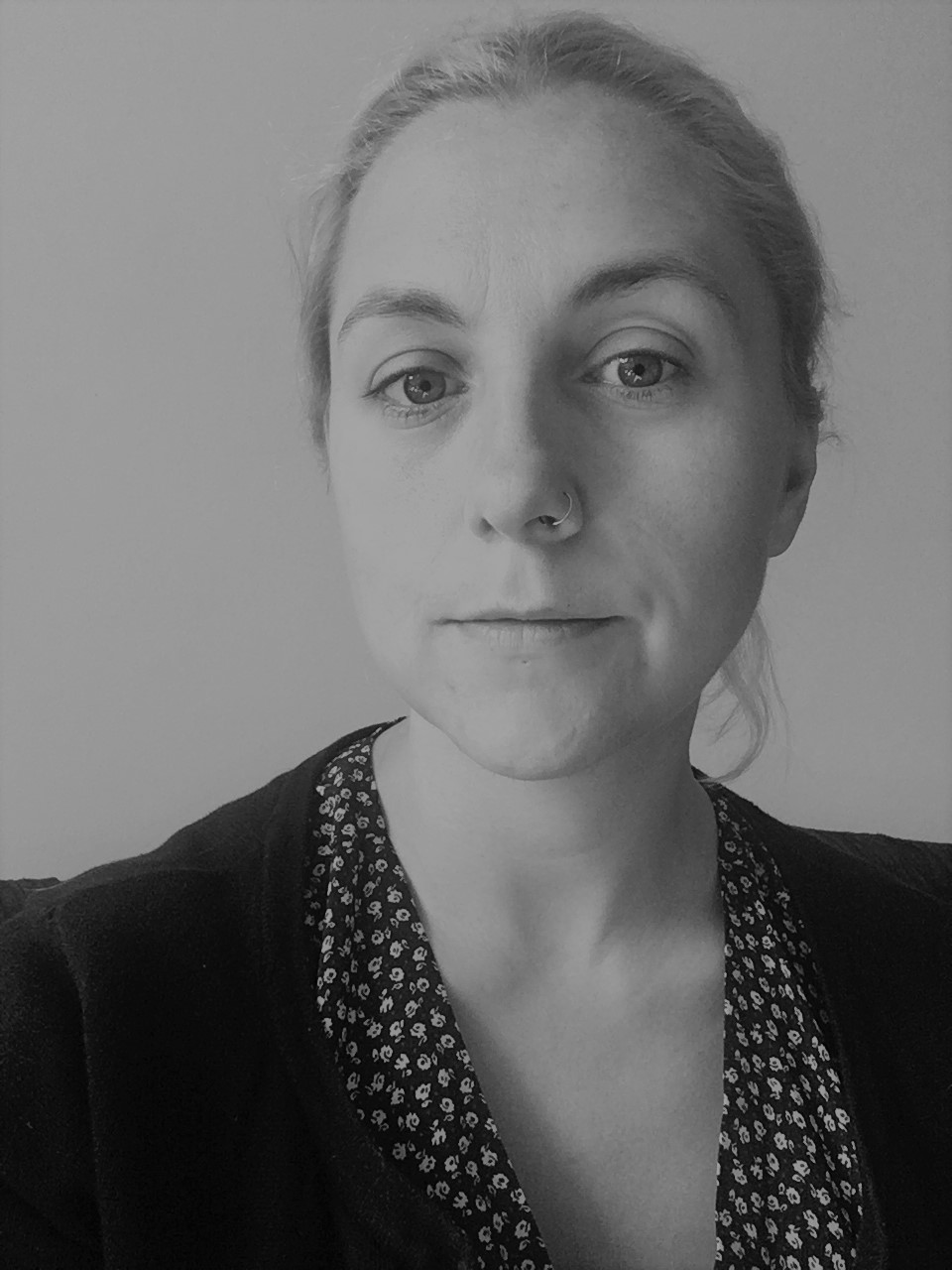
In this fifth post for the Mini-series on “Curriculum as a site for Social Justice and Anti-Discrimination”, Rebecca Hewer shares insights on teaching the BMedSci Bioethics, Law and Society course aimed at third-year intercalating medical students. This is one of several courses that seeks to help students think critically about the discipline and deconstruct some of the epistemological assumptions in medical studies. This post also includes testimonials by former students, Maeve McLeod and Angelina Malcher, who reflect on what they have learned on the course…
In the third year of their studies, undergraduate medical students at the University of Edinburgh undertake an intercalated degree – designed to diversify their skill set and engender awareness of medically relevant academic research. The vast majority of students opt for degrees in the medical sciences, e.g. immunology, molecular genetics, and pharmacology. However, a select (brave) few choose to study something less familiar – at least in a disciplinary sense. Options for these students include Global Health Policy, Anthropology and Sociology of Medicine, and Bioethics, Law and Society. I teach on the last alongside, many of my colleagues from the Centre for Biomedicine, Self and Society.
Traditionally the medical curriculum has required students to position themselves as practitioners-in-training, encouraging a commitment to the institutional norms of medicine. Innovations to the University of Edinburgh medical curriculum have ensured that students are exposed to more critical perspectives, however. When students undertake an intercalated degree in the social sciences or humanities, they are given the opportunity and space to develop these critical perspectives yet further, away from the competing demands of their more conventional medical education. In turn, students learn to situate medicine in the social and political conditions of its (re)production and subsequently perform the kind of critical reflexivity imperative to much social justice work. I would argue that any social justice project should be underpinned by a careful consideration of how specific institutional spaces are variously formed by, and formative of, our social, cultural, and political milieus. Encouraging medical students to undertake this careful consideration becomes all the more important when we acknowledge the relatively significant power of medical discourses in modern society, and medicine’s ongoing complicity in sustaining social and health inequalities. Any number of concrete examples could be drawn on to illustrate this point. Take, for example, the differential health outcomes for men and women suffering heart attacks and the role that medical evaluations and decision making play in producing this inequity.
Beyond this, I want to highlight a specific learning outcome we help students to meet on the BMedSci Bioethics, Law and Society. One which, I believe, makes our curriculum a site of social justice.
In short, our intercalated degree provides students with ample space and guidance to think critically about the positivist epistemology that often underpins traditional medical studies, and to consider the promise of more interpretivist knowledge traditions. This not only prepares students to undertake research in a different disciplinary setting, but also teaches them that knowledge itself can be a vehicle for power and subsequently instrumentalized to create and sustain social injustice. When we view knowledge production from a positivist stance – treating it as a relatively straightforward reflection of the material world – it becomes difficult to see its complicity in sustaining powerful interests. When we explore how knowledge reflects both materiality and the conditions of its production, we open the door to a more critical exploration of its functionality. This is important for medical students both insofar as it enables them to engage critically with, for example, clinical guidance, but also because it encourages them to treat different forms of knowledge seriously – forms which are classically given less legitimacy in the epistemic hierarchy. This, in turn, may nurture a more egalitarian relationship between clinician and patient, or at least sensitise trainee doctors to the limitations of medical thought.
Learning about epistemology and criticality can tax the most eager of minds, it requires us to question things we otherwise take for granted. But the medical students I have encountered are up to the challenge. Inquisitive, hardworking but most of all open – open to the possibility that there might be another way to think about and do knowledge. In what follows, two such students from the 2019-2020 BMedSci Bioethics, Law and Society cohort describe what that has meant for them.
Maeve McLeod
At the beginning of my intercalated degree, I was uncomfortable with both my ability and authority to engage with the concept of epistemology. However, by the end of the year, thanks to the teaching I received, I was able to use it comfortably in my dissertation on the ‘Rape Clause’, a controversial exemption to limits on Universal/Tax Credit eligibility. Although I am passionate about this issue, it is a topic which I previously may not have regarded as related to medicine – and therefore beyond my remit as a Medical Student. This year has taught me that medicine and healthcare cannot, and must not, be separated from what is going on within society, especially with regards to inequalities. The realisation that healthcare is impacted by, and has a ripple effect on social, political, and cultural domains is an understanding that I plan to take with me into my future career. I hope that in my practice after Medical School, I will not lose sight of this wider picture.
Angelina Malcher
Through my studies in my intercalated year, I was challenged to question how I understood knowledge, and to deviate from the positivist approach with which I am familiar. I explored how epistemic perspectives can drastically alter the knowledge which is shared and prioritised in society and how this is translated into institutional settings. Throughout, I examined how discourses reflect contingent understandings, leading me to understand how this can often cause explicit and implicit discrimination, prejudice, and inequality. I also learned how to interrogate my own perspectives, as influenced by my socialisation, and to become more reflexive. Moreover, I engaged in debates surrounding important discourses which arise within medicine such as reproduction, genetics, medical technology, consent, mental health, and more topics entangled with social justice. Through contextualising many of these discourses, I began to link the importance of challenging normative thought when discussing ethical issues to prevent discrimination.
This understanding was utilised in the critical analysis of Female Genital Cutting (FGC) policy in Scotland I undertook my dissertation. I explored this area of policy using Critical Discourse Analysis and Feminist Post-colonial Theory, challenging dominant ways of viewing FGC and diaspora communities which were reproduced within Scottish legislation. Through this I developed a more inclusive understanding of this intersectional issue and began to see how certain normative understandings can create barriers for achieving social justice for already stigmatised populations.
By exploring an expansive set of issues in my years study and dissertation, I have diversified my knowledge of how to approach discourses from a more reflexive, interpretivist position. This alongside my newfound understanding of the complexity of clinical decisions will come to help me become a more tentative and inclusive practitioner, prompting me to question the contingency of thought and acknowledging implicit discrimination in an aim to prevent prejudice within my practice.
 Rebecca Hewer
Rebecca Hewer
Dr Rebecca Hewer is a postdoctoral research fellow (socio-legal studies) with the Centre for Biomedicine, Self and Society, University of Edinburgh. Her work explores the socio-legal regulation of (predominantly) women’s bodies and the politics of knowledge production. You can follow her on twitter, @BecksHewer.
 Maeve McLeod
Maeve McLeod
Maeve MacLeod is a fourth year Medical Student who has just completed her intercalation in BMedSci Hons Bioethics, Law and Society. She has particular interest in feminist theory and Women’s Rights Issues. As such, she really enjoyed the opportunity intercalation gave her to explore these topics.
 Angelina Malcher
Angelina Malcher
Angelina is a fourth year medical student who previously intercalated in the Bioethics, Law and Society degree program. She also works within the Teaching Spaces Team as well as in the Development and Alumni department within the University, and currently holds the position of Edinburgh University Boxing Club Treasurer.


